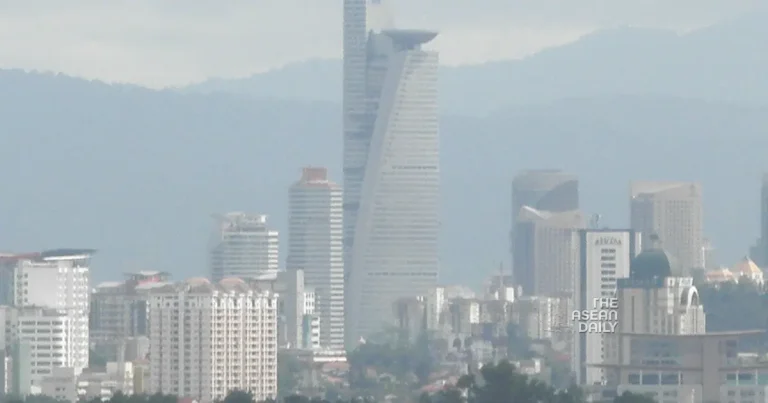3-10-2023 (KUALA LUMPUR) Malaysia is taking proactive measures to combat worsening air quality by attempting to induce rainfall through cloud seeding while also preparing to shut schools. The move comes amidst concerns over the re-emergence of pollution caused by forest fires, a recurring issue during dry seasons in the region.
Fires used to clear land for palm oil and pulp and paper plantations in Indonesia have traditionally resulted in a smoky haze that blankets the skies over much of Southeast Asia. This not only poses significant risks to public health but also causes worry among tourist operators and airlines.
The Department of Environment in Malaysia has reported a decline in air quality, particularly in the western region of Peninsular Malaysia. In a statement released on Monday (Oct 2), Wan Abdul Latiff Wan Jaffar, the director general of the department, disclosed that 11 areas in the country were recording unhealthy air pollution index (API) readings.
Last week, Malaysia attributed the pollution to fires in neighboring Indonesia. However, Indonesian authorities have denied detecting any smoke drifting across its borders into Malaysia.
On Monday, a regional meteorological agency identified nearly 250 “hotspots,” signifying fires, on Indonesia’s Sumatra island and its portion of Borneo island, with no such hotspots observed in Malaysia.
Malaysia is now initiating efforts to alleviate the situation, including cloud seeding to induce rainfall and implementing other measures to combat the pollution. These measures will be activated when API readings exceed 150 for a duration of more than 24 hours, as outlined by Wan Abdul Latiff.
Additionally, schools and kindergartens will be required to halt all outdoor activities when API readings reach 100 and close entirely when they hit 200.
In response to the ongoing issue of air pollution from forest fires, environmental group Greenpeace has called on countries in the region to introduce legislation that holds plantation companies accountable for causing such pollution.
Heng Kiah Chun, regional campaign strategist for Greenpeace Southeast Asia, emphasized the necessity of enacting a domestic transboundary haze act as a deterrent, especially given the existence of non-compliant companies in the industry.
Singapore, known for its commitment to clean air, passed a cross-border air pollution law in 2014. This legislation holds those responsible for causing haze criminally and civilly liable, setting a precedent for taking robust legal action against those contributing to transboundary air pollution.




